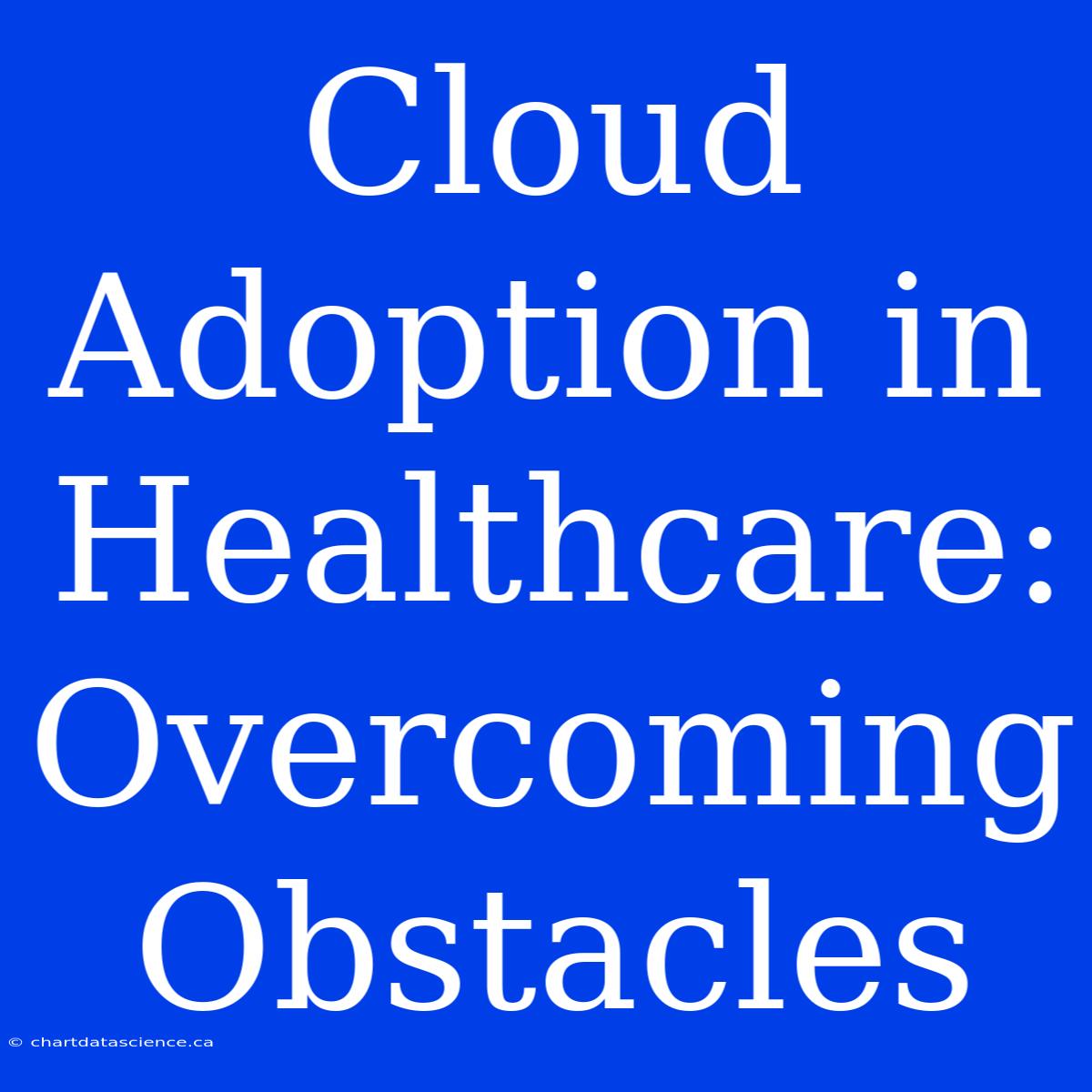Cloud Adoption in Healthcare: Overcoming Obstacles
The healthcare industry is undergoing a massive digital transformation, and cloud computing is at the forefront of this change. Cloud adoption promises to improve patient care, boost efficiency, and unlock new opportunities. But like any major shift, there are significant hurdles to overcome. This article explores the challenges healthcare organizations face in adopting cloud solutions and outlines strategies for success.
Why is Cloud Adoption Crucial for Healthcare?
The allure of the cloud is undeniable for healthcare providers. It offers:
- Improved patient care: Cloud-based systems can empower healthcare professionals with real-time data access, facilitate better collaboration, and streamline patient care.
- Enhanced efficiency: Cloud solutions streamline processes, automate tasks, and reduce administrative burdens, freeing up valuable time for clinicians.
- Lower costs: Cloud computing can reduce IT infrastructure expenses and eliminate the need for expensive hardware upgrades.
- Increased agility: Cloud providers offer flexible solutions that scale with changing needs and enable rapid deployment of new technologies.
- Enhanced security: Cloud providers offer advanced security features, helping healthcare organizations meet stringent compliance regulations like HIPAA.
Challenges to Cloud Adoption in Healthcare
While the benefits are numerous, healthcare organizations face unique challenges in embracing the cloud:
1. Security and Compliance: Protecting sensitive patient data is paramount. Healthcare organizations must ensure their chosen cloud providers meet stringent security standards and compliance regulations like HIPAA, GDPR, and others. This often involves comprehensive due diligence and ongoing audits.
2. Legacy Systems: Many healthcare institutions rely on aging, on-premise systems. Integrating these systems with cloud-based platforms can be complex and resource-intensive.
3. Data Privacy and Portability: Healthcare data is highly sensitive and must be protected from unauthorized access and breaches. Organizations must carefully consider data residency requirements and ensure data portability when migrating to the cloud.
4. Cost and Budgeting: Cloud adoption can involve significant upfront costs, including migration, training, and ongoing subscription fees. Healthcare institutions need to carefully assess their budgets and potential ROI before making the leap.
5. Resistance to Change: Fear of change and a lack of understanding about cloud technology can be barriers to adoption. Healthcare providers need to actively engage their staff and educate them about the benefits of cloud solutions.
Overcoming Obstacles: Strategies for Success
Here are some strategies to overcome the challenges and achieve successful cloud adoption in healthcare:
1. Choose the Right Cloud Provider: Carefully evaluate cloud providers based on their security track record, compliance certifications, and experience in the healthcare industry. Look for providers with HIPAA-compliant solutions, data encryption, and robust access controls.
2. Start Small and Scale Gradually: Don't try to overhaul your entire IT infrastructure overnight. Begin with a pilot project, focusing on a specific department or process. Success with a smaller project can build confidence and demonstrate the value of cloud solutions.
3. Embrace a Hybrid Cloud Approach: Combine on-premise infrastructure with cloud services to ensure a smooth transition and minimize disruptions to existing workflows.
4. Invest in Training and Education: Ensure your staff is properly trained on cloud technologies and applications. This investment pays off in the long run by boosting adoption rates and maximizing the benefits of cloud computing.
5. Cultivate a Culture of Collaboration: Engage all stakeholders, including IT staff, clinicians, and administrators, in the cloud adoption journey. Open communication and shared goals are essential for success.
The Future is Cloud: Unlocking New Possibilities
Cloud computing is poised to revolutionize healthcare, and its benefits are only beginning to be realized. By overcoming the obstacles and embracing a strategic approach, healthcare organizations can harness the power of the cloud to deliver better care, boost efficiency, and unlock new possibilities for improving patient outcomes.

